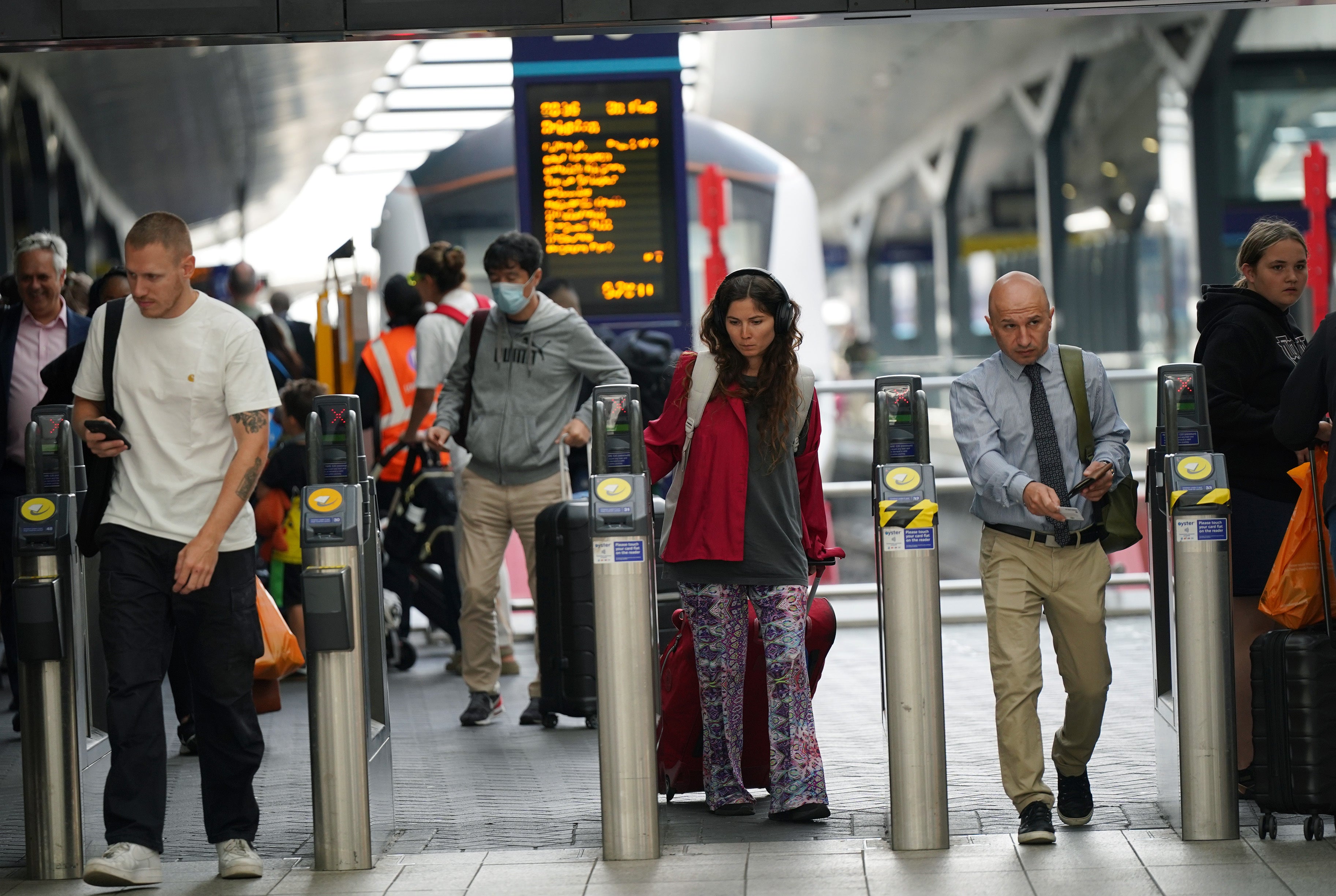London commuter numbers rising but staff embracing hybrid working, O2 data shows
The mobile operator has revealed crowd movement data from its network shows people are returning to the office in London, but only on certain days.

Your support helps us to tell the story
From reproductive rights to climate change to Big Tech, The Independent is on the ground when the story is developing. Whether it's investigating the financials of Elon Musk's pro-Trump PAC or producing our latest documentary, 'The A Word', which shines a light on the American women fighting for reproductive rights, we know how important it is to parse out the facts from the messaging.
At such a critical moment in US history, we need reporters on the ground. Your donation allows us to keep sending journalists to speak to both sides of the story.
The Independent is trusted by Americans across the entire political spectrum. And unlike many other quality news outlets, we choose not to lock Americans out of our reporting and analysis with paywalls. We believe quality journalism should be available to everyone, paid for by those who can afford it.
Your support makes all the difference.Commuter numbers into the City of London have nearly doubled since last year and the lifting of Covid-19 restrictions in England, according to new data from mobile operator O2.
The network said the data – which it gathered based on connections to O2 mobile masts in major commuter, hospitality and retail hubs – had found that peak commuter volumes in the City had risen by 96% compared to July last year, when Covid rules were relaxed, but were still 27% down on pre-pandemic levels.
According to the figures, commuters are also settling into new weekly routines, with Wednesdays and Thursdays now the busiest days in the City as they are the only ones to match pre-pandemic crowd levels, which the operator suggests shows more people are splitting their time between home and the office as part of post-pandemic hybrid working.
Other areas of London have seen lower peak crowd numbers, O2 said, with its figures showing a 41% increase in crowd numbers in Soho since Covid restrictions were lifted.
It’s interesting to see that, year-on-year, crowd trends in socialising and retail hotspots have stayed fairly consistent, but peaks in some busy commuter areas have almost doubled
Retail hubs have seen less change over the last year, according to the figures, with a 7% decrease in overall average crowd movement numbers reported at the Bluewater Shopping Centre and a 5% increase reported around Westfield White City.
The data was gathered by O2 Motion, the network’s data service which used anonymised and aggregated data gathered from a connection between a device and various phone masts to offer insights into crowd movements across the UK.
Monica Mercado Paez, head of AI and data at Virgin Media O2 Business, said: “A year on from lockdown lifting, large-scale crowd insights like this anonymised O2 network data can help paint a picture of the working, shopping and socialising patterns that could be here to stay.
“Understanding movement trends will be critical as the UK continues to adapt to the changing habits of a hybrid working population.
“It’s interesting to see that, year-on-year, crowd trends in socialising and retail hotspots have stayed fairly consistent, but peaks in some busy commuter areas have almost doubled.
“From mapping out how Londoners are using office space and local businesses, to the scheduling of transport services, looking at data like this will help employers and city planners alike continue to evolve to best meet the needs of their people.”